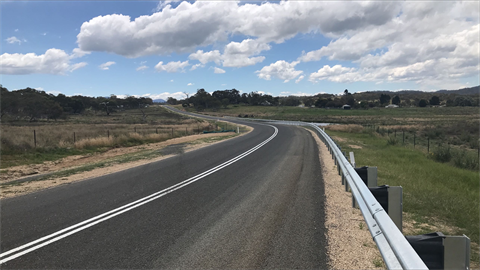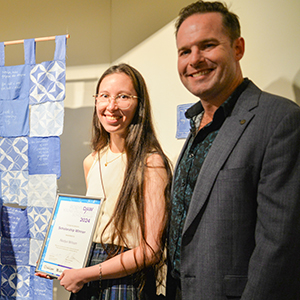The Committee on the Elimination of Racial Discrimination today concluded its consideration of the combined twenty-first to twenty-fifth periodic report of the Philippines, with Committee Experts commending the law on HIV/AIDS, and asking questions on indigenous peoples, and on internally displaced persons.
One Committee Expert commended the law on HIV/AIDS, and asked what strategy was adopted and implemented by the State party in order to protect persons living with HIV/AIDS from stigmatisation and discrimination, which were real obstacles in prevention and care. The Committee also wished for disaggregated data on the number of people living with HIV in the country, in particular among the indigenous population.
Michal Balcerzak, Committee Expert and Country Co-Rapporteur for the report of the Philippines, asked the delegation to provide information about specific judgments of domestic courts that referred to protecting and promoting the rights of indigenous peoples. He noted the range of programmes and activities intended to ensure that indigenous peoples could benefit from human rights without discrimination, however, during the period under review, there had been an expansion of foreign and private large-scale projects for mining, hydropower dams, infrastructure, agribusiness, and logging, all of which had threatened indigenous peoples’ land rights and undermined indigenous customary land practices. He asked how the Government ensured that the principle of free, prior and informed consent was respected in all circumstances.
Faith Dikeldi Pansy Tlakula, Committee Expert and Country Co-Rapporteur for the report of the Philippines, said the indigenous peoples occupied a special place in the country. She also spoke of the Committee’s concerns that durable solutions for internal displacement caused by past events, including natural disasters such as typhoon Haiyan, had yet to be found, asking what frameworks for rights-based and gender-sensitive programming did the State party have in place to respond to past, ongoing, and future displacement. It appeared that the situation of internally displaced persons had continued to decline in part as a result of forced evictions of communities to make way for large-scale resource extraction projects and climate change induced related disasters that had been exacerbated by deforestation and watershed loss. She asked what had been done to protect displaced persons from the effect of climate change, disasters and deforestation.
Allan A. Capuyan, Chairperson of the National Commission on Indigenous Peoples of the Philippines and head of the delegation, said there were 17 special regions in the country, and there were discussions in the Regional Task Forces on the rights of indigenous peoples, industrial workers, youth and students and other groups in order to mainstream issues from the ground with sectoral issues. The rights of every citizen and their well-being were guaranteed through the Constitution. The National Commission on Indigenous Peoples supported human rights defenders. Almost 6 million hectares of territory had been declared ancestral lands and territories – almost one third of the country. The colour of skin did not matter, nor did clothing, what mattered were rights, which were being protected and respected.
The delegation said the Government had adopted strategies to protect the rights of persons living with HIV and AIDS and to ensure that they did not suffer from discrimination, and this included laws mandating that testing should be voluntary and free from coercion, and that the privacy of persons affected should be respected.
On internally displaced persons, the delegation said legislation provided for the protection of the rights of the indigenous in cases of armed conflict, including through the Department of Social Welfare and Development. Food and other resources were provided for internally displaced persons. Many children were exposed or vulnerable to armed conflict in various areas: the influence of violent extremism could not be denied, the delegation said. The Philippines was enacting a law on children involved in armed conflict, whose rights would now be promoted and guaranteed.
In concluding remarks, Mr. Balcerzak said the delegation had been very responsive. He supported the request expressed earlier with regard to the interim follow-up report – some issues would require response in one year in order to keep the dialogue going, and these would be indicated in the recommendations.
Mr. Capuyan said the interim report would be submitted. The Government, over past decades, had actively stood against all forms of racial discrimination, and actively worked for the protection and promotion of Filipinos and others alike. It was one nation.
The delegation of the Philippines consisted of representatives of the National Commission on Indigenous People; the Presidential Human Rights Committee Secretariat; the Council for the Welfare of Children; Department of Justice; Office of the Court Administrator; Department of Foreign Affairs; and the Permanent Mission of the Philippines to the United Nations Office at Geneva.
The Committee will issue its concluding observations on the report of the Philippines after the conclusion of its one hundred and ninth session on 28 April. Summaries of the public meetings of the Committee can be found here, while webcasts of the public meetings can be found here. The programme of work of the Committee’s one hundred and ninth session and other documents related to the session can be found here.
The Committee will next meet at 3 p.m. to review the combined twelfth and thirteenth periodic report of Tajikistan (CERD/C/TJK/12-13).
Report of the Philippines
The Committee has before it the combined twenty-first to twenty-fifth periodic report by the Philippines (CERD/C/PHL/21-25).
Presentation of Report
ALLEN A. CAPUYAN, Chairperson of the National Commission on Indigenous Peoples of the Philippines and head of the delegation, said the 1987 Philippine Constitution guaranteed the full respect of human rights and dignity of every person as well as the promotion of the rights of indigenous cultural communities within the framework of national unity and development. To reinforce this Constitutional guarantee, the Philippines had acceded to the International Convention on the Elimination of Racial Discrimination in 1967 and enacted the Indigenous Peoples Rights Act in 1997, which latter was the State’s landmark legislation enacted by and for the people as it went through broad nationwide consultations with indigenous peoples’ communities and support groups. It was focused on addressing the plight of Filipino indigenous peoples as a sector that was marginalised and most vulnerable to discrimination in Philippine society while correcting historical injustice and discrimination.
The Philippines took note and valued the observations made by the Committee. The report had focused on responding significantly to the Committee’s previous concluding observations and recommendations. The report reflected the inputs arising from five major consultations with non-government organizations and civil society groups, and among government agencies. From these consultations, the national report underscored the following essential feedback: the State reaffirmed its national policy to prevent and address all forms of discrimination arising from race, colour, descent, or national or ethnic origin, taking into account the principles of non-discrimination and the core international human rights instruments. To further put form to this policy, the State enacted 215 laws relevant to the promotion, protection and fulfilment of the rights of indigenous peoples during the period under review.
The State had enhanced its judicial processes to ensure that its laws, as properly interpreted, positively bore upon the rights of indigenous peoples, and recognised that development must be pursued in full respect of human rights and through inclusive and participatory processes. The State emphasised its high regard for the role of indigenous political structures, which were the authentic indigenous leadership and governance systems of indigenous peoples, in mitigating violations and conflicts. The State, in keeping with its responsibility to ensure that indigenous peoples’ rights were protected, acted on these and other atrocities committed against indigenous peoples by violent Leftist extremists.
With regard to milestones since the last submitted report, the Philippines had embarked on partnerships and collaborations to advance indigenous peoples’ rights and strengthen capacity to fulfil its obligations under the Convention. To date, more partnerships had been established under collaborative frameworks, such as memoranda of agreement or cooperation involving some 70 government and non-government organizations. These were forged to facilitate the streamlining of programmes, activities, and projects for indigenous peoples, women, children, youth, and elderly. Collaborations continued to expand to foreign institutions and international human rights organizations and mechanisms.
The COVID-19 pandemic became an opportunity for the State to showcase its capacity and competence to protect its indigenous peoples, especially keeping track of the varying situations of indigenous peoples in their respective communities. In March 2022, the Philippines acceded to the 1961 Convention on the Reduction of Statelessness. The Philippines likewise enhanced its mechanisms for refugees with the issuance of an administrative regulation to establish a fair, efficient and non-adversarial procedure for the protection and assistance of refugees and stateless persons. Moreover, an inter-agency committee was institutionalised in February 2022, tasked to facilitate access to socio-economic services by refugees and stateless persons.
The Philippines took pride in a number of institutional strengthening efforts aimed at being more responsive to the call for action on indigenous issues in the Philippines and overseas, including through establishing the Information and Communication Technology Command Centre. The State was committed to further strengthen its collection of comprehensive data on indigenous peoples for policy planning and formulation and the implementation of culturally sensitive and appropriate programmes.
All these were milestones and achievements contributing toward the implementation of the Convention and the elimination of discrimination. However, more had to be done by the State. The vulnerability of communities to external factors, such as foreign ideologies, armed groups, land grabbers, abusive politicians, criminal elements and other actors who illegally operated and extracted resources inside the ancestral domains continued to threaten the indigenous peoples’ right to self-determination and governance. The Philippines sought the help of the Committee in this regard, and asked the Committee to join it in its campaign against the abuse of the United Nations system by interest groups that were aligned with violent Leftist extremists in the country. Such bogus groups had benefited much from the good will of the United Nations and had used the same to access foreign funds that perpetuated terrorism.
The Philippines remained guided by its 11 building blocks which kept it focused and determined, including: confirmation of indigenous political structures; registration and accreditation of indigenous peoples’ organizations; delineation of ancestral domains and ancestral lands; preparation of ancestral domains sustainable development and protection plans; design of indigenous peoples wealth management, community royalty management, and development plans; implementation of socio-economic activities with indigenous peoples’ cooperatives; and operation of the ancestral domain defense system. The Philippines’ commitment to the promotion, protection and fulfilment of the rights under the Convention would not waiver, and it would eliminate discrimination that pervaded the indigenous peoples’ sector in the country.
FAYDAH MENIRI DUMARPA, Commissioner of the Commission of Human Rights of the Philippines, commended the delegation and the Government for the impressive work done over the years, recognising the efforts undertaken by the Government amid the pandemic. Laws, policies and programmes were in place, and much already had been done. However, indigenous peoples and communities still faced many challenges in enjoying their civil, political, economic, social and cultural rights. The Commission wished to stress the need to gather disaggregated data on indigenous women, children and youth, displaced persons, and indigenous elderly, thus allowing the Government to plan to address their concerns more particularly, ensuring that this was not fragmented.
There had been harassment of civil society organizations, including members of indigenous communities, and the Government should ensure that its mechanisms were not used to unjustly attack indigenous groups, civil society organizations, members of the opposition, and journalists, among others. The State should strengthen the Commission’s mandate in line with the Paris Principles. The Commission would continue to be a partner in advancing human rights in the Philippines, and monitoring the situation, including among vulnerable and disadvantaged communities, working to protect and promote the situation in the Philippines for all Filipinos.
Questions by Committee Experts
MICHAL BALCERZAK, Committee Expert and Country Co-Rapporteur for the report of the Philippines, suggested that the core document, last submitted in 1993, be updated. With regard to the Convention in domestic law, he asked about the status of comprehensive anti-discrimination bills that had been filed, whether they included consultations with indigenous communities, and whether there had been any changes to them made during the legislative process.







